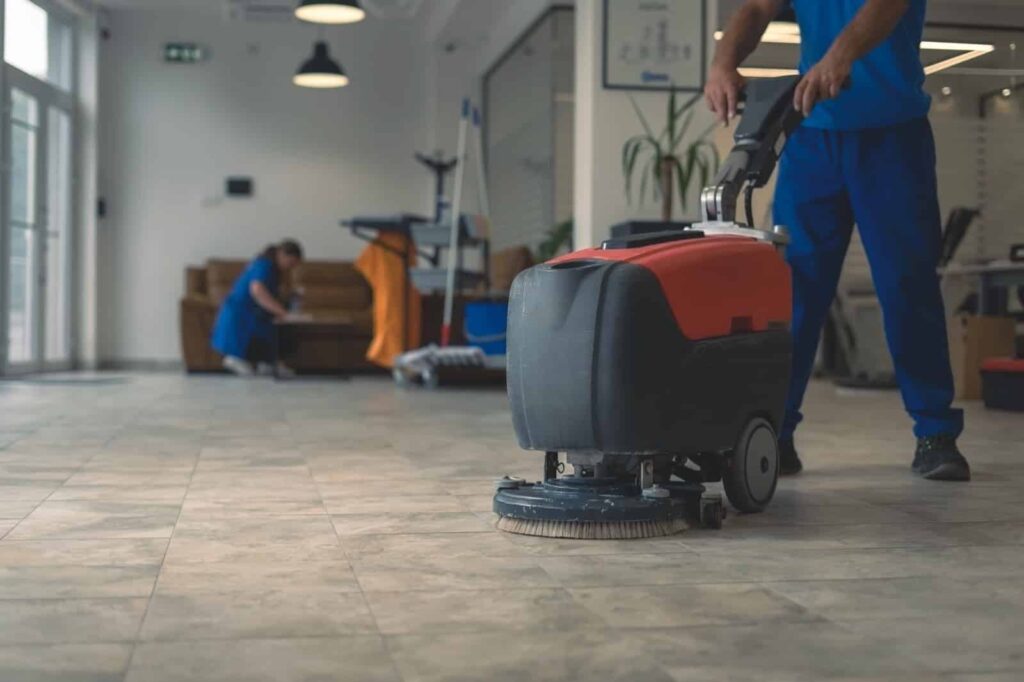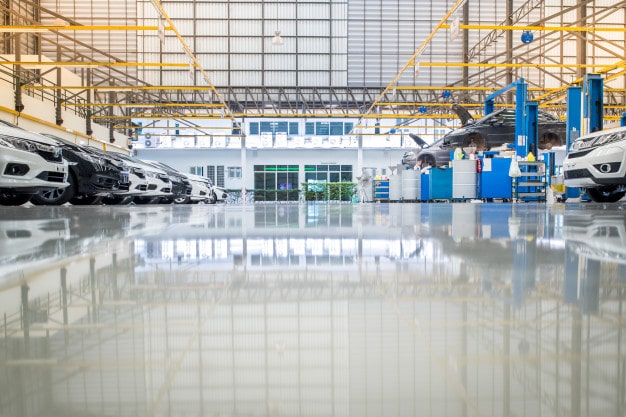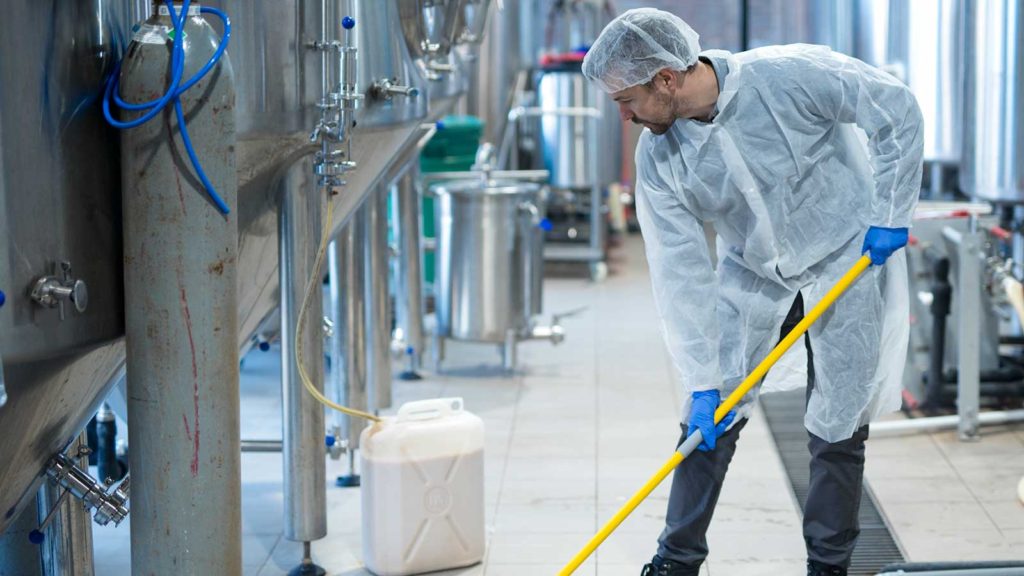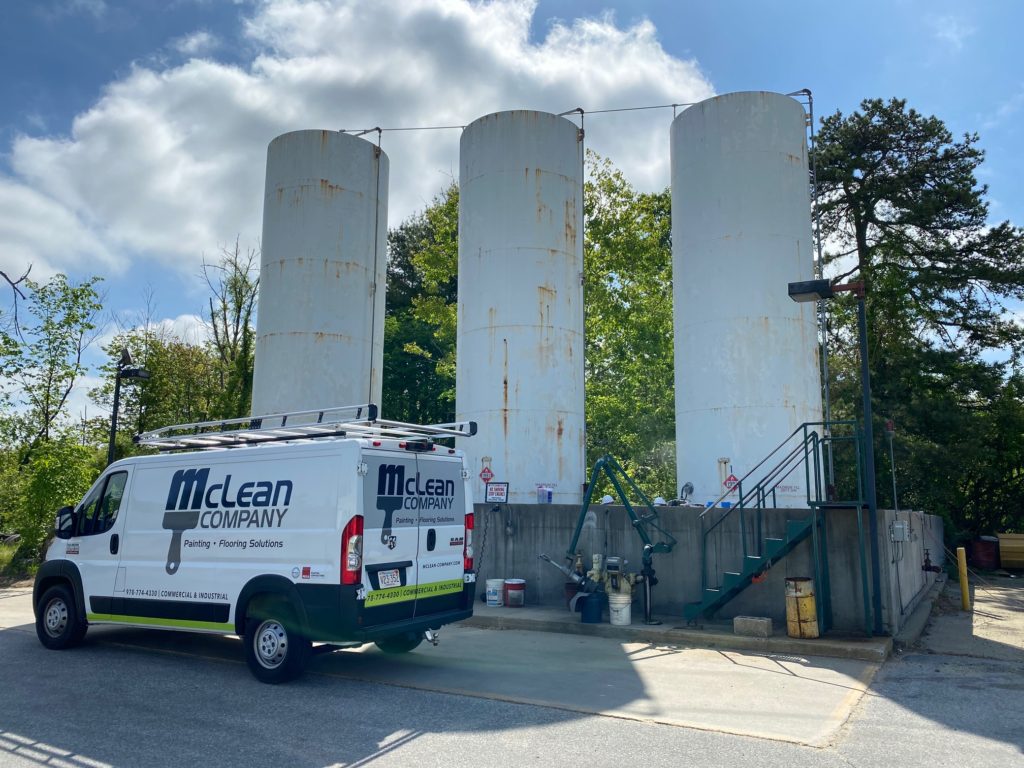What Are the Benefits of a Commercial Flooring Company?
A professional commercial flooring company brings several benefits to the table. Skilled installers are equipped with the necessary expertise to handle different materials, from vinyl and laminate to ceramic and hardwood, ensuring that each floor type is fitted to the highest standard.
Commercial flooring professionals can also provide valuable advice on the most suitable materials and designs that align with a business’s specific needs. Furthermore, safety standards are paramount in commercial spaces, and a proficient flooring company is adept at complying with regulatory requirements.
With a focus on quality, efficiency, and compliance, a commercial flooring company (like McLean in the greater Boston, MA area) is instrumental in installing floors that are not only visually appealing but also offer a reliable foundation for daily business operations.
The Benefits of Hiring a Commerical Flooring Company
Opting for professional installation when it comes to commercial flooring brings essential advantages, such as enhanced quality of work and efficiency in both time and cost. These benefits are critical for businesses that prioritize durable and attractive flooring solutions.
- Quality and Expertise: Consistency in the installation process leads to a superior finish, and a thorough understanding of various materials ensures that the right choice is made for each specific business environment.
- Technical Knowledge: Installers bring a deep understanding of substrates, adhesives, and finishing options.
- Professional Assessment: An evaluation prior to installation identifies the most appropriate flooring material and technique for the space.
- Streamlined Process: Installers follow a systematic approach to ensure timely completion.
- Waste Reduction: Accurate measurements and skilled cuts lead to less material waste.
- Building codes and standards: Commercial floor installation companies must comply with all applicable building codes and standards, which vary by jurisdiction. These regulations ensure safety, accessibility, and sustainability.
- Eco-friendliness: Materials and methods now focus on reducing environmental impact and promoting health and well-being in built environments.
Getting Started with Commercial Floor Installation
Commercial flooring is a critical component of business aesthetics and functionality. It shapes the space where transactions happen, impacts customer impressions, and can influence operational efficiency.
Types of Commercial Floors
Commercial floors come in various materials, each with unique benefits and considerations:
- Vinyl: Known for durability and low maintenance; ideal for high-traffic areas.
- Carpeting: Offers noise reduction and comfort; suitable for office environments.
- Ceramic Tile: Provides a high-end look and is easy to clean; well-suited for lobbies and bathrooms.
- Laminate: Mimics the appearance of wood or stone at a reduced cost; frequently used in retail spaces.
- Epoxy Flooring: Resists chemicals and abrasion; commonly utilized in industrial settings.
- Rubber Flooring: Enhances safety with its slip-resistant quality; optimal for gyms and healthcare facilities.
Factors Influencing Floor Selection
Several factors are critical in selecting the proper commercial flooring:
- Traffic: High-traffic spaces demand durable materials.
- Aesthetics: The flooring should complement the business’s design theme.
- Maintenance: Some materials require more upkeep than others.
- Budget: Costs vary widely between flooring types.
When a business employs a commercial flooring company, they benefit from professional consultation addressing these factors.
Flooring Lifecycle
Each type of commercial floor has an expected lifecycle, influenced by material quality and environmental conditions:
| Flooring Type | Expected Lifecycle |
| Vinyl | 10-20 years |
| Carpeting | 5-15 years |
| Ceramic Tile | 20-50 years |
| Laminate | 10-30 years |
| Epoxy Flooring | 5-10 years |
| Rubber Flooring | 10-20 years |
Selecting the right floor also involves consideration of lifecycle costs, including installation, maintenance, and potential for repair or replacement. A commercial flooring company can offer valuable insight into the total cost of ownership for various flooring options.
Commercial Floor Installation Process
The installation process of commercial flooring involves specific steps that ensure a safe, durable, and cost-effective outcome. Expertise in planning and employing correct safety and adhesive protocols is critical to the project’s success.
Planning and Layout
Proper planning and layout are the foundation of a successful flooring installation. Estimating flooring installation costs requires an accurate measure of the area and a clear understanding of the materials needed. This step involves:
- Determining dimensions of the space
- Assessing subfloor condition and materials
- Considering workflow to minimize business interruption
- Creating a detailed layout to maximize material use and reduce waste
Safety Protocols
During installation, safety protocols are imperative to protect workers and the integrity of the space. This includes:
- Use of personal protective equipment (PPE), such as gloves and safety glasses
- Ensuring proper ventilation when using adhesives and other chemicals
- Adhering to the manufacturer’s guidelines for material handling
- Implementing area barricades to prevent unauthorized access
Adhesive Methods
Choosing the right adhesive method impacts both the durability of the floor and the total installation costs. Installation teams must select adhesives appropriate for the flooring material and the space’s conditions. This involves:
- Assessing the moisture levels of the subfloor
- Selecting adhesives that are compatible with both the subfloor and the flooring product
- Applying adhesive uniformly to prevent issues such as bubbling or uneven surfaces
- Allowing adequate time for the adhesive to set before permitting traffic on the flooring
Flooring Installation Cost
Managing the financial aspects of commercial floor installation projects requires careful planning and consideration. A clear understanding of potential expenses and judicious cost-saving measures can influence the project’s economic efficiency and overall success.
Estimating Floor Installation Costs
When estimating flooring installation costs, businesses should consider several key factors. These include the type of flooring material, the cost per square foot, labor expenses, and any additional materials needed for installation. For example, luxury vinyl tile may range from $2 to $5 per square foot, while ceramic tile might run between $5 to $10 per square foot (source).
- Materials: Prices will vary widely based on the flooring choice.
- Labor: Professional installation can cost from $1 to $5 per square foot, depending on the complexity.
- Additional Materials: Underlayment, adhesives, and finishing materials may incur extra costs.
Businesses can use a simple table to break down these components:
| Component | Cost Range |
| Flooring Material | $2 – $10 per sq. ft. |
| Labor | $1 – $5 per sq. ft. |
| Additional Materials | Variable |
Select the Right Contractor for Your Commercial Flooring Installation
Selecting the right contractor who offers competitive pricing and high-quality work is crucial. That’s why McLean Company includes detailed research and multiple quotes to guide your decision-making process.
If you are located in the greater Boston, MA area, then go ahead and contact us or request a quote to get a sense of your flooring installation costs.




